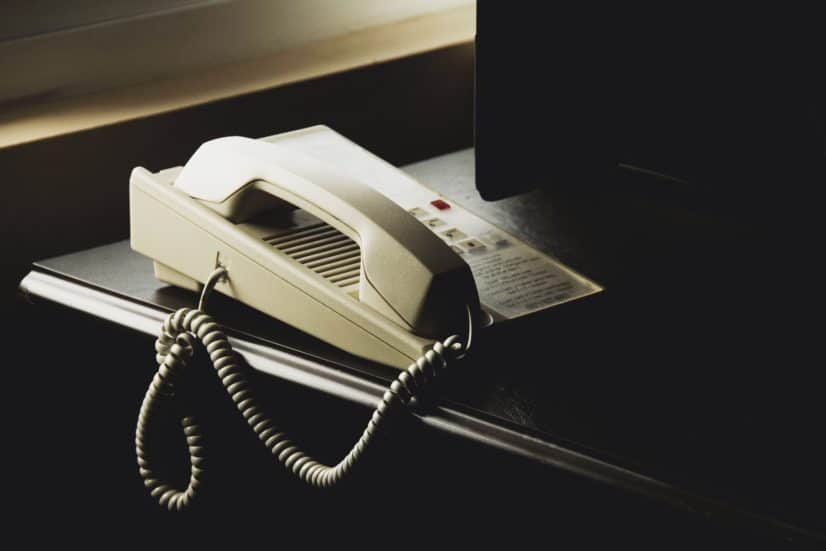Even though e-mail and text messaging have become very popular forms of business communication, companies still need phone systems to communicate both internally and externally.
A private branch exchange (PBX) is a type of business phone system that has been around for decades. While the system itself might be a legacy approach, PBX technology has evolved significantly to keep up with the times. There are many different types of PBX systems, with many that are relevant for small businesses. Through customizable features, a well-designed PBX system can add significant value to a company and even provide a competitive advantage.
What is PBX?
If you have ever worked at a company where you could transfer internal and external phone calls, you have used a PBX system. Modern PBX systems also offer several additional functions like voicemail and auto attendant functionality.
Depending on the type of system, a PBX can provide numerous benefits for small businesses. This is especially true for companies with large numbers of remote workers. Understanding the different types of PBX systems, their relevance and the benefits they offer is critical to determining how a PBX system can help your small business.
Types of PBX Systems
A traditional PBX system uses copper phone lines and landlines connected to a box containing call switches. This hub allows calls to be sent to any phone connected within the system. Because a traditional PBX is based and physical wiring and hardware, changing or expanding it is a significant undertaking. Fortunately, newer PBX systems are internet-based and less dependent on physical wiring, making them more versatile and easily expanded. The two different types of modern PBX systems that are well-suited to small businesses are IP PBX and hosted PBX.
An IP PBX uses voice over internet protocol (VoIP) to host and switch calls over a network, rather than physical hardware. An IP PBX system also has internet-enabled functionality like voicemail and call recording. Because this type of system is located on-premise, it gives a small business significant control and oversight. However, a company that has an IP PBX must cover all software and hardware costs related to hosting an in-house system.
A hosted PBX system is similar to an IP PBX system, but the former is hosted remotely by a service provider. Small businesses that want the functionality of an IP PBX system but do not want to deal with the overhead should consider a hosted PBX system. Companies that use a hosted PBX system must pay service fees, but the cost of these fees is typically less than the overhead costs of an IP PBX system.
Features and Benefits of Modern PBX Systems
Small businesses looking to implement a PBX system should know what's available so they can determine what is best for them. The typical modern PBX systems offer a wide range of features, including:
- Call reporting. If your company does a lot of business over the phone, such as order fulfillment or customer service, then call reporting is a highly valuable function. It allows you to determine the length of the average call, the number of calls per day, the number of missed calls, the busiest times of the day, and your top performers. These statistics can help you better allocate resources and incentivize top performance.
- Auto attendant. If you have ever been asked to direct your call by pressing a number, you’ve interacted with an auto attendant. Although auto attendants have been derided in popular culture, they automate a highly repetitive function, allowing administrative workers to handle more complex tasks. An auto attendant is also seen as a mark of professionalism, which can help build credibility for a small business.
- Call recording. Recorded calls can serve several different functions. When the details of an important phone call need to be clarified, a recording can serve as a valuable reference. Recordings can also help with accountability and minimize legal risks. Call recordings can also be a great training tool. New sales or customer service employees can review calls to understand how to respond to common issues. Experienced employees can also use recordings to develop strategies for challenging issues.
- Mobility. With an internet-based PBX system, users are no longer restricted to company facilities. Anywhere there is a cellular or wireless connection, the user of an IP or hosted PBX system can make calls or access voicemails. The decentralized nature of modern PBX systems also means they are available to large numbers of remote workers.
A PBX System from Taylored Systems Can Help Your Small Business
If your company is looking to invest in a customized PBX system, you should turn to a provider you can trust. Taylored Systems has been providing phone and PBX systems to small businesses for more than three decades, and during that time, we’ve been able to help small businesses address all kinds of communications challenges. Contact us today to learn more about how a PBX system can make your company more efficient, responsive and profitable.

